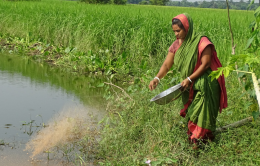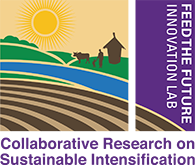Innovation Lab addresses agricultural gender inequality in Cambodia through leadership, education and mechanization. (Photo credit: Molly Webb, SIIL)
Researchers with USAID’s Feed the Future Innovation Lab for Collaborative Research on Sustainable Intensification (SIIL) take a holistic approach to their work, looking at the ways in which their innovations affect all aspects of a farmer’s life. For SIIL investigators, gender dynamics are a constant issue of importance.
“The one thing we know is that so much is changing for women around the world. We want them to know enough so that they can respond to that change in positive and productive ways,” said sociologist Cornelia Flora, Emeritus Professor at Iowa State University, research professor at Kansas State University and member of the SIIL’s External Advisory Board.
In Cambodia, for example, gender equality is a national priority, but problems still persist.
“Male family members are moving away from villages into cities or going to other neighboring countries to find employment,” said Vara Prasad, director of the SIIL. “But the families still have to continue farming because they have the land and they can’t waste that, so those who are left must take over the farm. Those individuals are primarily women.” Continue reading “Sustainable Intensification Promotes Inclusive Farming Practices”




